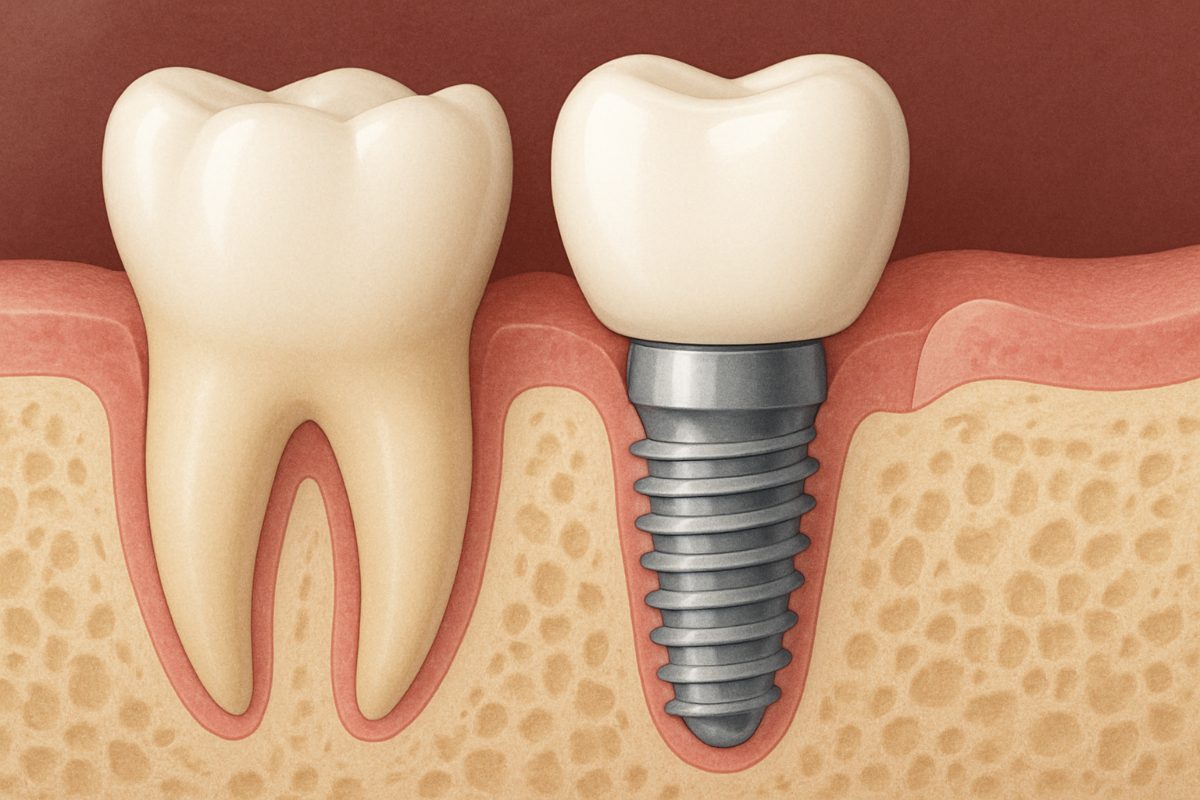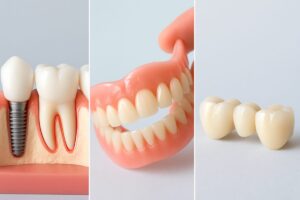Do implants: a quick look at what dental implants are, why people choose them, and what this guide covers. If you’re wondering whether to do implants, this post will explain safety, who’s a candidate, the treatment steps, costs, risks, and questions to ask a provider.
What Are Dental Implants?
Dental implants are metal posts placed in the jaw to replace missing tooth roots. They connect to an abutment and a crown that looks like a real tooth. Unlike bridges or removable dentures, implants are fixed and help preserve jawbone and chewing function.
Should You Do Implants? Key Questions
– Do you have one or more missing teeth? – Do you want a long-term fixed solution rather than a removable denture? – Is your oral health reasonably good (no uncontrolled gum disease)? – Are you prepared for a multi-step process and costs? If you answered yes to most, implants may be a good option.
Who Is A Good Candidate To Do Implants?
Bone health and jaw structure
Good bone volume and density help the implant fuse with the jaw. If bone is thin or worn away, a bone graft can rebuild it before implant placement.
Overall health and habits
Controlled chronic conditions (like diabetes) usually allow implants, but uncontrolled disease raises failure risk. Smoking slows healing and raises complications. Strong daily oral hygiene is essential.
Age and expectations
Age alone isn’t a barrier. Candidates should have realistic expectations about time, healing, and maintenance. Younger patients with growing jaws may need special planning.
Types Of Implant Treatments
– Single-tooth implants: replace one tooth with a single implant and crown. – Implant-supported bridge: replaces several teeth using fewer implants. – Implant-retained dentures: dentures snap onto implants for stability. – All-on-4 / full-arch: a fixed bridge supported by 4+ implants for a full upper or lower arch. Choice depends on how many teeth are missing, bone, and budget.
What To Expect: Procedure, Recovery, And Costs
Typical steps in treatment
You’ll start with a consult and imaging. The implant is placed in the jaw, then a healing period lasts weeks to months. After the implant fuses, an abutment and crown are attached.
Recovery timeline and tips
Expect swelling and mild pain for a few days. Soft foods, rest, and prescribed pain meds help. Follow-up visits check healing and hygiene. Smoking and poor care can delay recovery.
Costs and financing basics
Costs and financing basics vary by number of implants, bone grafts, imaging, and whether a specialist is needed. Insurance may cover parts of treatment but often not the full cost. Many practices offer payment plans or third-party financing.
Benefits, Risks, And Longevity
Benefits include improved chewing, natural look, and bone preservation. Risks include infection, implant failure, nerve injury, or sinus issues. With good care, implants can last 10–30 years or longer.
Questions To Ask Your Dentist Before You Do Implants
– How many implant cases do you place per year? – What is your success rate and possible complications? – Do I need grafting or other preparatory work? – What is the total timeline and cost? – What warranties or follow-up care do you offer?
Next Steps: Finding the Right Provider
Schedule a consult with a licensed dentist or oral surgeon for an exam and CT scan when considering whether to do implants. Bring medical history and your list of questions. A short exam will show if implants are realistic and which option fits your needs.





